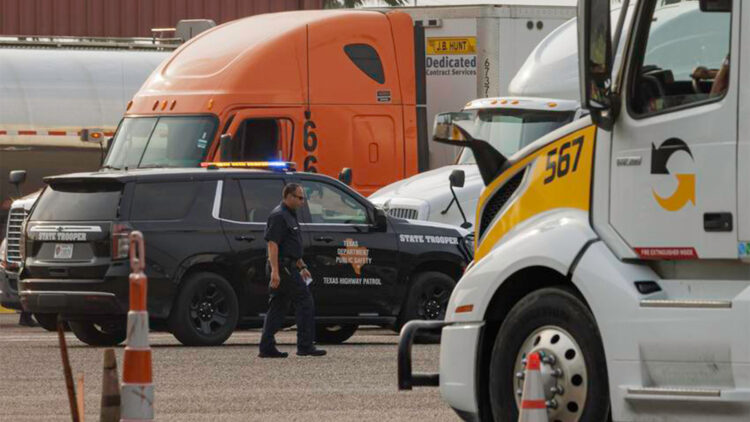The trucking industry is being shaken by a very important change on licenses to foreign drivers in Texas that may have an impact on the movement of goods across the United States over the holiday season. U.S. Secretary of Transportation Sean P. Duffy declared an emergency action on September 26 because of with a Federal Motor Carrier Safety Administration (FMCSA) audit that was carried out across the nation.
This means that the Texas Department of Public Safety (DPS) and the Department of Transportation (DOT) have limited who is eligible to get commercial driver’s licenses (CDLs) and commercial learner’s permits (CLPs) in the state.
The decision comes at a critical time for the sector, which is already facing a trucker crisis and a severe driver shortage, and it primarily impacts immigrants, refugees, and DACA holders who were undergoing commercial driving training.
Who is impacted by the new traffic laws?
Certain CDL and CLP permits that have been granted to individuals without a U.S. domicile are no longer valid or restricted by the new rule. This includes a large number of immigrants, refugees, and some DACA recipients who were enrolled in training courses or were scheduled to sit for licensing exams.
Officials attribute the pause to safety concerns following deadly crashes involving foreign carriers as well as the FMCSA’s audit. For people who are currently on training, this change usually means that their courses are put “on hold,” and employers are unable to hire them quite yet.
This means less new drivers joining the system at a time when there is already a shortage of truckers, which is no good news for Texans and companies.
Direct effect on shipping and training expenses
Trucking academies and driving schools are already feeling the impact. Because some trainees only have ordinary work permits, training programs like Grand Prairie’s Truck God have delayed student progress. A driving school’s program director, Brittany Clemens, stated that a number of students had to stop their training until the regulations were clarified.
Logistics companies warn about increased expenses from a business perspective. The CEO of MW Logistics, Mitchell Ward, pointed out that reducing the number of drivers available will result in higher commercial transportation costs. Higher transportation expenses for businesses often turn into higher prices for consumers, which is concerning given the current high rate of inflation.
The approaching holiday season could end up with supply networks that are more irregular and have limited capacity.
What might happen next
The period of the restriction is uncertain. What the DOT decides upon and the results of the FMCSA audit will determine this. To avoid leaving employers and students waiting, businesses and training institutions demand faster information.
Better retention initiatives (bonuses, increased pay), more effective route design, and planning for backup staffing during periods of high demand are all possible things that transportation businesses can do. In addition to keeping their documentation current, trainees and currently impacted employees should stay in touch with their employers and educational institutions and ask about interim alternatives like non-driving logistics positions.
While the regulations are being worked out, community organizations that assist immigrants and refugees can provide legal assistance and information about available options.
Trying to find common ground
Texas’s decision to restrict CDL and CLP for non-domiciled candidates may result in a shortage of drivers at one of the most important time of the year, increasing shipping prices and impacting holiday customers.
The difficulty, in the meantime, is to provide affected immigrants, refugees, and DACA applicants with a clear route ahead so that their livelihoods and training are not left in limbo while maintaining public safety without making the driver shortage worse.

